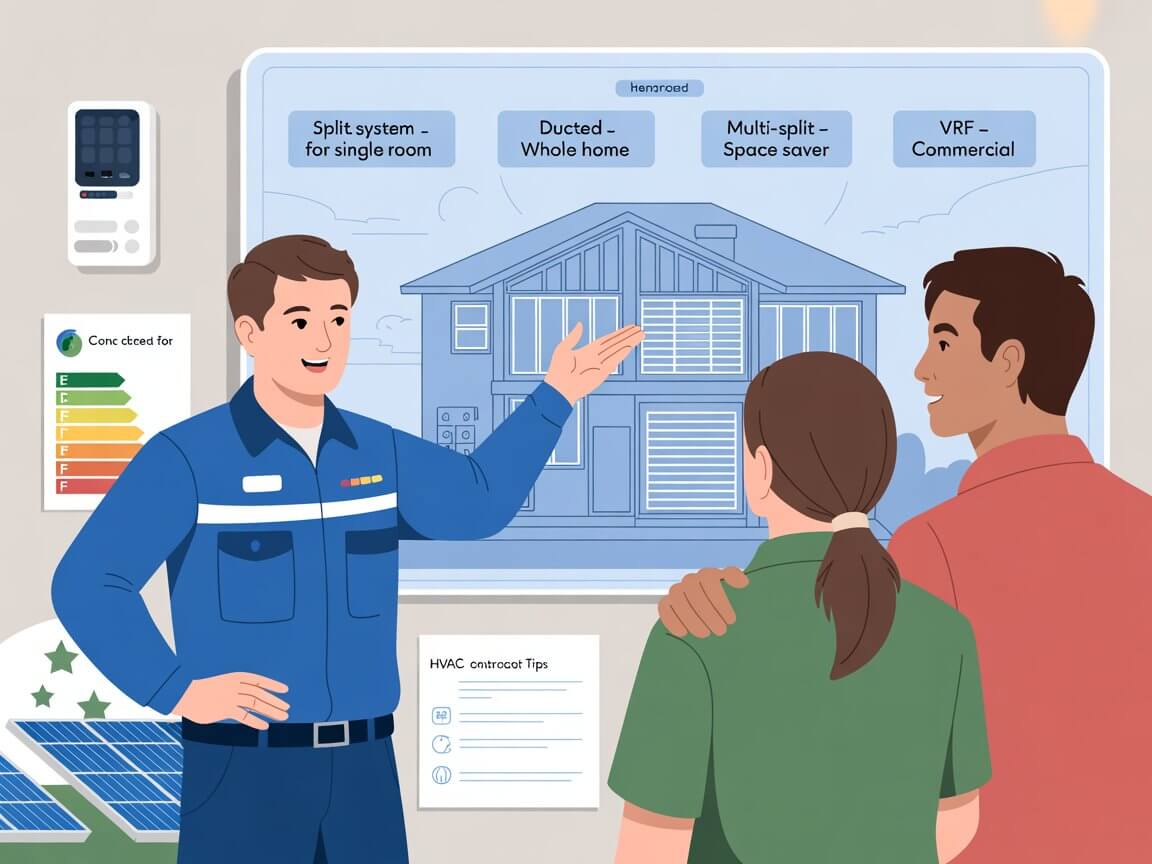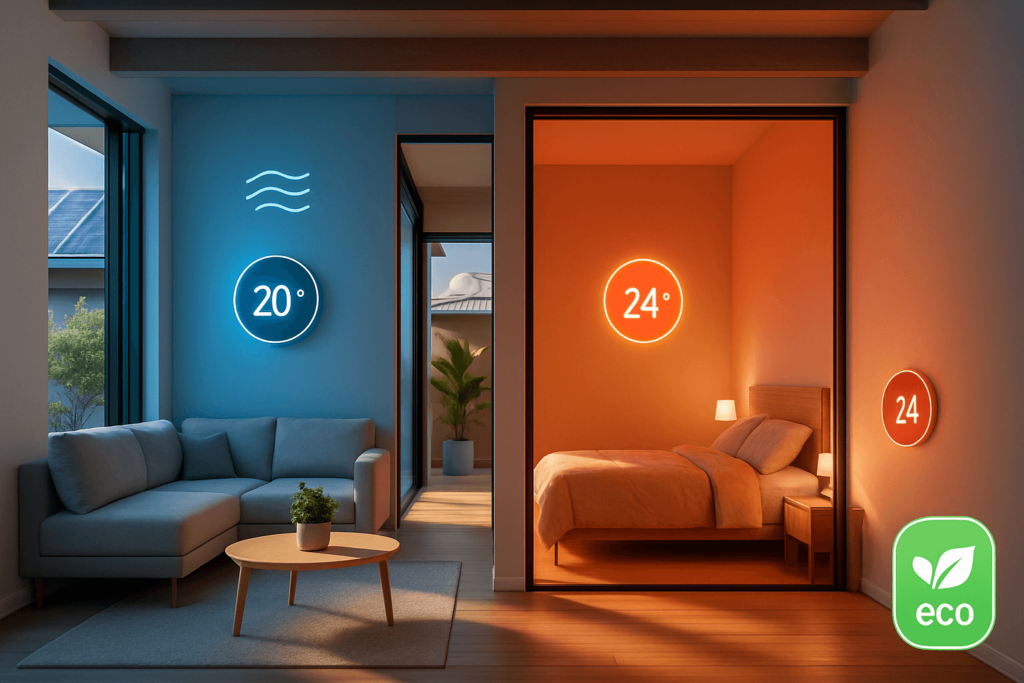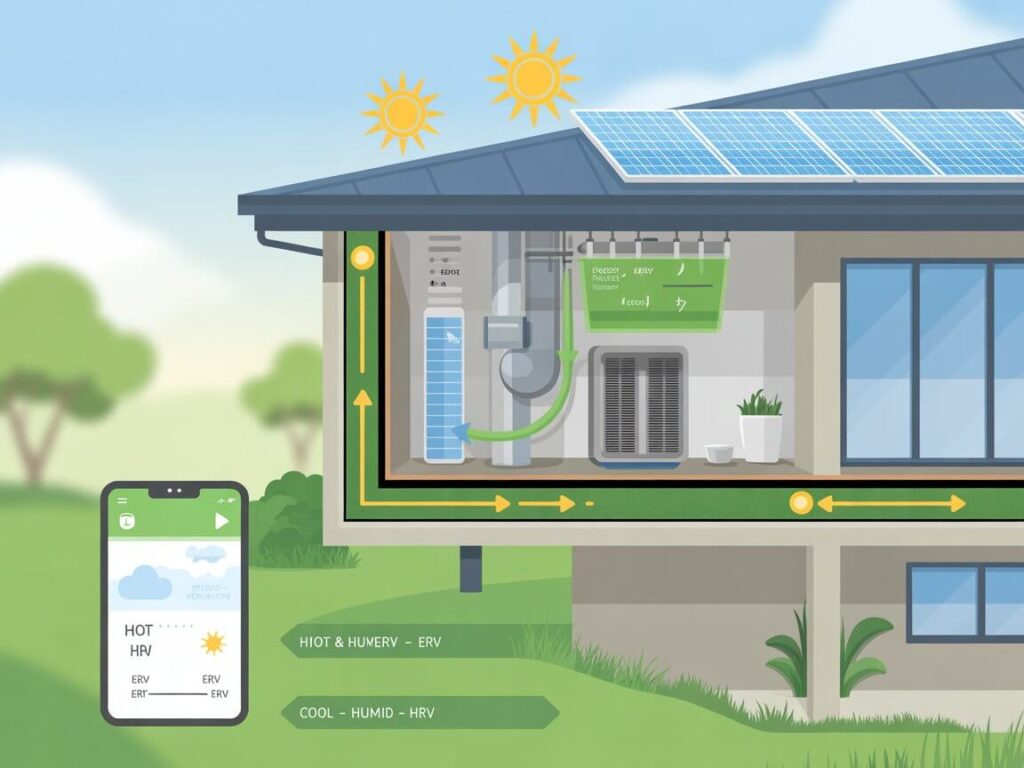Choosing the right HVAC system is one of the most important decisions for any home or business owner in Australia. With rising energy prices and increasing environmental concerns, investing in an energy-efficient HVAC setup can make a significant difference. Whether you’re building a new home, renovating, or simply replacing an outdated system, making an informed choice is essential.
In this guide, our HVAC experts at Zero Energy share their top HVAC contractor tips to help you find the perfect system that fits your needs, budget, and sustainability goals.
Why Choosing the Right HVAC System Matters
An efficient HVAC system ensures:
- Comfort all year round—cooling in summer and heating in winter.
- Lower energy bills, thanks to improved performance and efficiency.
- Reduced carbon footprint, supporting your sustainability efforts.
- Improved air quality, which benefits health and wellbeing.
But with many types, brands, and models on the market, it’s easy to feel overwhelmed. That’s where expert advice becomes crucial.
Top HVAC Contractor Tips for Choosing the Right System
1. Assess Your Property’s Needs
Every property is different. A one-size-fits-all solution doesn’t work when it comes to HVAC. Consider:
- Size of the area you want to heat or cool
- Number of rooms
- Insulation quality
- Ceiling height
- Window placement and sun exposure
Tip from our HVAC expert: A professional energy audit can help you better understand your property’s energy consumption patterns. Zero Energy provides comprehensive energy assessments tailored for Australian homes and businesses.
2. Understand the Different Types of HVAC Systems
Knowing what’s available helps you make the right choice. Here are the most common HVAC options:
Split Systems
- Ideal for single rooms or open-plan areas
- Easy to install and cost-effective
Ducted Systems
- Suitable for whole-home or commercial applications
- Offers centralised climate control
Multi-Split Systems
- Connects multiple indoor units to one outdoor unit
- Great for properties with limited space
VRF (Variable Refrigerant Flow) Systems
- Best for large commercial buildings
- Provides precise temperature control and high energy efficiency
Each system has pros and cons. Your HVAC contractor can help assess what suits your space and usage patterns.
3. Prioritise Energy Efficiency Ratings
In Australia, HVAC systems are labelled with Energy Rating Labels. These indicate how much energy the system consumes and how efficiently it operates.
Look for:
- A high Star Rating
- Inverter technology (for better performance and energy savings)
- Compatibility with solar energy systems (especially if you have solar panels)
💡 HVAC Contractor Tip: Don’t just focus on the upfront cost. A more efficient system may cost more initially but will save you thousands over its lifetime in reduced energy bills.
4. Choose the Right Size System
A system that’s too small will struggle to heat or cool effectively, while an oversized unit will cycle on and off frequently, leading to:
- Uneven temperature
- Increased wear and tear
- Higher energy consumption
Your HVAC expert should perform a detailed load calculation to determine the correct size based on your property’s specifications.
5. Factor in Installation and Maintenance
Even the best HVAC system won’t perform efficiently if it’s not installed correctly.
✅ Choose a licensed and experienced HVAC contractor (like Zero Energy)
✅ Ensure regular maintenance and filter changes
✅ Ask about warranty terms and service support
How Zero Energy Helps
At Zero Energy, we’re committed to helping Australian families and businesses make smarter, greener energy choices. Our HVAC experts provide:
- Tailored HVAC system recommendations
- Professional installation services
- Ongoing maintenance and support
- Integration with solar systems for maximum savings
We use only trusted, high-quality brands and ensure that every system is designed for efficiency, comfort, and sustainability.
Common Mistakes to Avoid
- Buying based on price alone
- Ignoring energy efficiency
- Choosing the wrong system size
- DIY installation or unlicensed contractors
- Skipping regular servicing
Avoiding these mistakes can save you time, money, and headaches in the long run.





